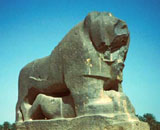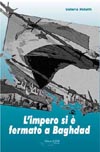September 26, 2014
Many Yemenis fear that the Houthi leader's rhetoric amounts to little more than a Trojan Horse.
As Houthi rebels gradually descended on the Yemeni capital, Sanaa, over the weekend, many observers seemed caught by surprise. It wasn't just that the group's military victory felt sudden - for many, they were virtual unknowns.
"The Houthis got their name from their obscure origins," joked satirist Karl Sharro on Twitter. "When people saw them, they used to ask 'Who this? Who this?'"
Considering the Houthis' low international profile, the quip was not particularly far off. It's an odd irony of the coverage of Yemen. The six brutal wars waged against the Houthis during the rule of Yemen's former President Ali Abdullah Saleh got little attention outside of the country.
The series of violent clashes north of Sanaa pitting the Houthis against largely Sunni tribal adversaries have left thousands dead. But even as the Houthis' series of military victories since 2011 continued to bring them closer and closer to the capital, international attention was remarkably fleeting.
It's worth remembering, of course, that the Houthis were sidelined in the 2011 agreement brokered by the Gulf Cooperation Council (GCC) that pushed Saleh from power in favour of consensus candidate and then-Vice President Abd Rabbu Mansour Hadi. His leadership ushered in a period of governance that was often dysfunctional by a coalition government split between members of former President Saleh's party, the General People's Congress (GPC), and the Joint Meeting Parties (JMP), a grouping of establishment opposition factions including the Islamist Islah party - which incorporates the bulk of the Yemeni Muslim Brotherhood - and leftist factions like Yemen's Socialist and Nasserist parties.
Greatest asset
The Houthis' position outside the seat of power has ultimately proved their greatest asset, allowing them to present themselves as a viable alternative to the political mainstream.
Born in the Zaidi heartland of Saada, a mountainous province on the Saudi border, the Houthis' charismatic founder, Hussein al-Houthi, who was killed by government forces in 2004, gave voice to feelings of economic and political marginalisation under the Saleh-era political order in addition to widespread resentment of US and Saudi influence in Yemen. Under the leadership of his younger brother, Abdulmalek, the group has continued to gain support in the face of the government's attempts to suppress them, whether militarily or by imprisoning pro-Houthi activists.
In some sense, the movement has had two faces: Since 2011, the Houthis' political wing has launched peaceful protests and participated in Yemen's Conference of National Dialogue, even as its armed wing continued to clash with its rivals in a series of hotpots north of Sanaa.
And while the Houthis' military prowess obviously played a key role in their stunning victory in the capital, the importance of their political moves should not be dismissed: by aligning themselves with popular demands - whether the overthrow of the widely unpopular unity government, frustration over rampant corruption, or anger over the removal of fuel subsidies - the Houthis were able to transcend their roots in the revival of Zaidism, a brand of Shia Islam found almost exclusively in northern Yemen, gaining the ability to paint themselves as a national, non-sectarian movement.
These factors - in addition to the lingering divisions and distrust within Yemen's armed forces - effectively paved the way for Houthi victory in Sanaa over the weekend.
That's something that's often lost in much of the coverage of the conflict, which paints it as a simple battle between Shia Houthis and Sunni conservatives, a single front in a larger battleground between Iran and Saudi Arabia.
Politics or religion?
To state the obvious, it's far more complicated - even if many in Yemen and the region cling to such narratives themselves.
In the bulk of cases, it's politics - rather than religion - that has driven many tribal figures unhappy with the status quo - particularly powerful Islah-aligned sheik's hold on many tribal areas - to throw in their lot with the Houthis. Many secular political activists have been drawn to their anti-corruption rhetoric. As Houthi fighters entered Sanaa, many in the military offered little resistance, viewing the Houthis as less objectionable than the group's primary adversary, Major General Ali Mohsen al-Ahmar, a powerful, and controversial, Islah-aligned military leader who has since fled into exile.
Perhaps most notably, Saudi Arabia and the Gulf States have signalled their acquiescence to the new order in Sanaa, welcoming the signing of the peace accord by the Houthis and representatives from other political parties in Yemen. Western governments have followed suit and the UN welcomed the accord in a matter of days after appearing to threaten Houthi leaders with punitive sanctions.
On paper, the peace accord is a good deal - a rewrite of the GCC-brokered accord providing for greater inclusion and, hopefully, paving the way towards more functional governance in Yemen.
The devil, as usual, is in its implementation. The Houthis say they are committed to peace; the group's leader, Abdulmalek al-Houthi, delivered a magnanimous, nationalistic speech on September 24, calling for inclusion and for Yemenis to join together to build the country.
But many in the country remain apprehensive and fear that Houthi's rhetoric amounts to little more than a Trojan Horse: the Houthis declined to sign an annex to the agreement stipulating the withdrawal of their forces, while Houthi fighters have taken aim at the homes of a number of their adversaries in Sanaa.
Most of the rest of the country are on edge as well. It remains to be seen if southern separatists will take advantage of the tumult in the north to finally make a break with Sanaa.
Most Houthis and their sympathisers, still thrilled with victory, speak with optimism about the future; even many Yemenis not aligned with the group seem hopeful that the Houthis could at least bring a comparative calm.
Nonetheless, the country remains on a knife's edge, and even President Hadi has warned that the country is at risk of civil war or dissolution.
Ultimately, it is too soon to tell.
The dislodging of the Houthi militants from Sanaa seems as unlikely today as the Houthi conquest of Sanaa would have seemed a month ago.
Source
















